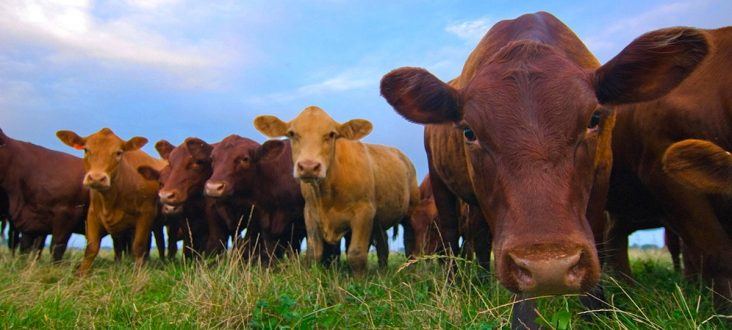Arkansas researchers receive part of $10 million federal agriculture grant
by October 14, 2021 2:29 pm 645 views

Two Arkansas researchers will be gauging consumer sentiment as well as evaluating any health and economic benefits of meat products from livestock raised on perennial forage systems. The goal is to significantly increase food production in the coming decades.
The $10 million grant from the U.S. Department of Agriculture’s National Institute of Food and Agriculture, will focus on studying and promoting perennial forage systems. The grant is part of USDA’s efforts to increase U.S. farm production by 50% while reducing the environmental footprint for production by 40% by 2050. Arkansas was awarded just over $500,000 of the grant for its work.
The project is led by the University of Wisconsin–Madison and involves a team of more than 50 researchers and stakeholders from 23 universities, two USDA-Agricultural Research Service centers, as well as 12 farmer organizations, industry groups, non-governmental organizations, and government agencies.
Perennial forages include grasses and legumes meant to feed livestock either as hay or grazing. The use of perennials can aid in conserving soil and water quality. In the U.S., livestock, in particular cattle, are economically important. According to USDA’s Economic Research Service, cattle production consistently accounts for the largest share of total cash receipts for agricultural commodities. This year, cattle production is forecast to represent about 17% of the $391 billion in total cash receipts for agricultural commodities, the ERS states.
In Arkansas, two members of the agricultural economics and agribusiness department will be working on the grant: Di Fang, an associate professor; and James Mitchell, assistant professor, and extension livestock economist. The department is supported by both the Dale Bumpers College of Agricultural, Food and Life Sciences, which conducts the teaching part of the land grant mission, and the Division of Agriculture, which hosts the extension and research land grant parts.
“Forage-based agricultural production has always been important to the agricultural economy in Arkansas,” John Anderson, head of the agricultural economics and agribusiness department, said. “This project will provide a tremendous opportunity to explore innovative ways to improve the productivity of forage-based production systems as well as to capture additional environmental and social benefits from those systems.”
“Arkansas is well-positioned to make a vital contribution to this important work. I appreciate the efforts of Dr. Fang and Dr. Mitchell, two of our outstanding young faculty members, to bring this project to our state,” he said. “Lessons learned from this work will benefit not only our farms and communities but also many others around the country and even around the world.”
Fang said her work will “estimate consumers’ and society’s valuation of agricultural products generated from diverse perennial circular systems as well as identifying and evaluating key health and social benefits of diverse perennial circular systems.”
“My past work on consumer food marketing and health has prepared me for this project,” she said. “The project provides unique opportunities to evaluate a critical sustainability issue in agriculture and how this issue will impact human health and society. I will be reaching out to stakeholders and working with colleagues in other fields to achieve the goals proposed. I am excited to embark on this new journey!”
Mitchell said in addition to working with Fang on the consumer elements, he would be providing estimates of the economic benefits of certain farm management choices.
“For the protein sector, sustainability has been a buzzword used in academic, industry, and policy discussions,” he said. “As a livestock economist working in Arkansas, I am ultimately interested in finding research-driven solutions that foster climate resilience, environmental sustainability, and on-farm profitability.”
This project was announced on Oct. 6 in a USDA news release about new awards made through the department’s AFRI Sustainable Agriculture Systems program.
“This is the time for agriculture, forestry, and rural communities to act. Together we can lead the way with investments in science and research and climate-smart solutions that feed and nourish families, improve the profitability and resilience of producers, improve forest health while creating new income opportunities, and building wealth that stays in rural communities,” U.S. Secretary of Agriculture Tom Vilsack said.
